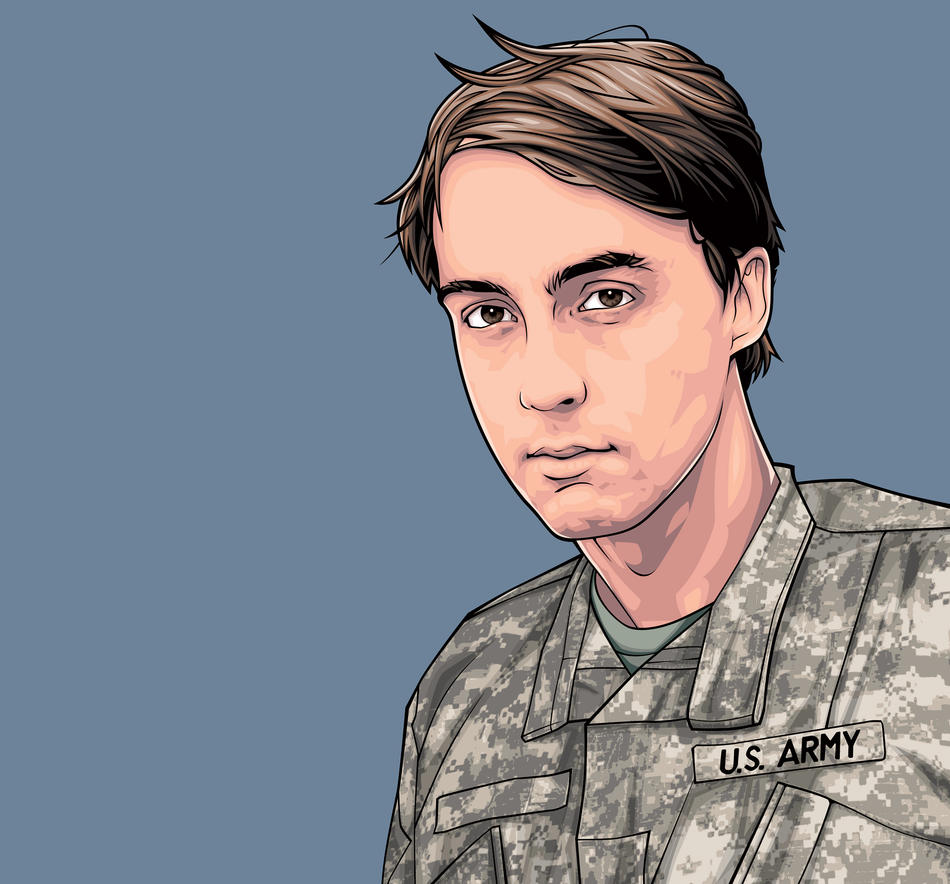I found it interesting that your novel spends so much time exploring conflict within the American unit, and rumors surrounding the sergeant, as opposed to conflicts between the Americans and the Iraqis.
As you know, there are a lot of social and cultural dynamics at play in a military unit. My experience was positive: I had incredible sergeants who viewed my development as a lieutenant as part of their job. But I saw from other units that it isn’t always like that. In Youngblood, I wanted to explore a much darker side of the military.
We both fought a counterinsurgency in which a typical day might include a firefight in the morning and tea with village elders in the afternoon. This dichotomy is evident in your writing, particularly since you include a lot of strong Iraqi characters. Why was showing that important to you?
Being a part of a counterinsurgency means dealing with people face-to-face, but most war literature tends to dehumanize the enemy. We’re starting to see some examples of books that more accurately depict these kinds of interactions — Elliot Ackerman’s Green on Blue is told from an Afghan’s perspective, and in Mike Pitre’s Fives and Twenty-Fives, one of the narrators is an Iraqi interpreter. Otherwise, you’d have to go back to World War I literature for the enemy to really appear at all.
You include both military jargon and Arabic in Youngblood. Were you ever nervous that a civilian reader would find that distancing?
Writing drafts of the book at Columbia helped with that, because I had a whole classroom full of civilian readers who helped me find balance. I wanted to keep the lingo in there for texture, but still make sure it would be accessible for readers of all backgrounds. I’m sure there are some readers out there who think I failed in that regard but inshallah — all you can do is your best.
Your memoir Kaboom started as a blog while you were stationed in Iraq. What inspired you to return to the same subject in fiction?
I thought I was done with the subject. I started my MFA at Columbia in the fall of 2011, and I was writing about pretty much anything other than Iraq or the military. But then the American military began withdrawing from Iraq. I’d write during the day and stay up at night watching news clips. It seems almost quaint now, but when our unit came home in early 2009, we thought we’d won the war. Two years later, it felt very tenuous, so all these questions were swirling in my mind. I just let myself do one short story at first. It was a slow process of bargaining with myself until I finally gave up and started the novel.
There is an emerging group of authors who are veterans of the wars in Iraq and Afghanistan. How has that community impacted you as a writer?
I became part of a veterans’ writer group based in New York, with members like Phil Klay, who won the National Book Award in 2014 for his book Redeployment. We worried that people wouldn’t care or take us seriously, but at the same time we felt like we had something unique to say that wasn’t being represented in the literary community. With that common goal, we made each other better writers.
Why did you decide to join the military?
For me, it was a combination of factors. I came from a military family, so that mattered. History was being made, and, like a lot of young people, I wanted to participate in it, even if I had some personal misgivings about Iraq.
Do you miss the Army or Iraq — and are those two different things?
It’s the old truth: you miss the people, but you don’t necessarily miss the institutional madness. Yeah, I miss Iraq. There was a daily sense of purpose, a clarity of being. Every patrol is important because the stakes are so high. I’m no adrenaline junkie, by any means. I don’t like jumping out of planes, and I barely speed when I drive, but I did really appreciate having the sense of purpose. But that’s so easy to say. I have all of my limbs. I came back and went to grad school. With one wrong turn or one misstep, this would have been a completely different conversation.



